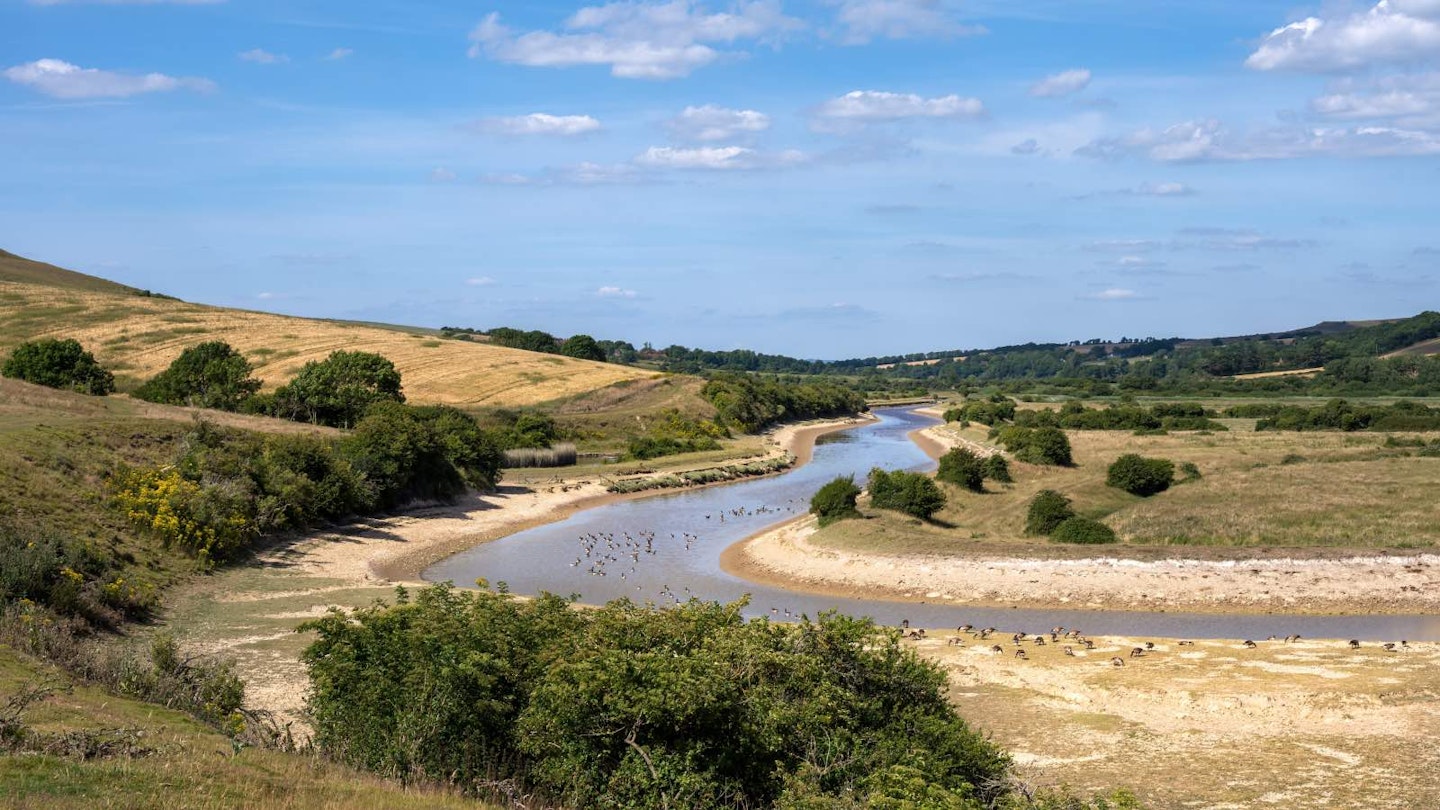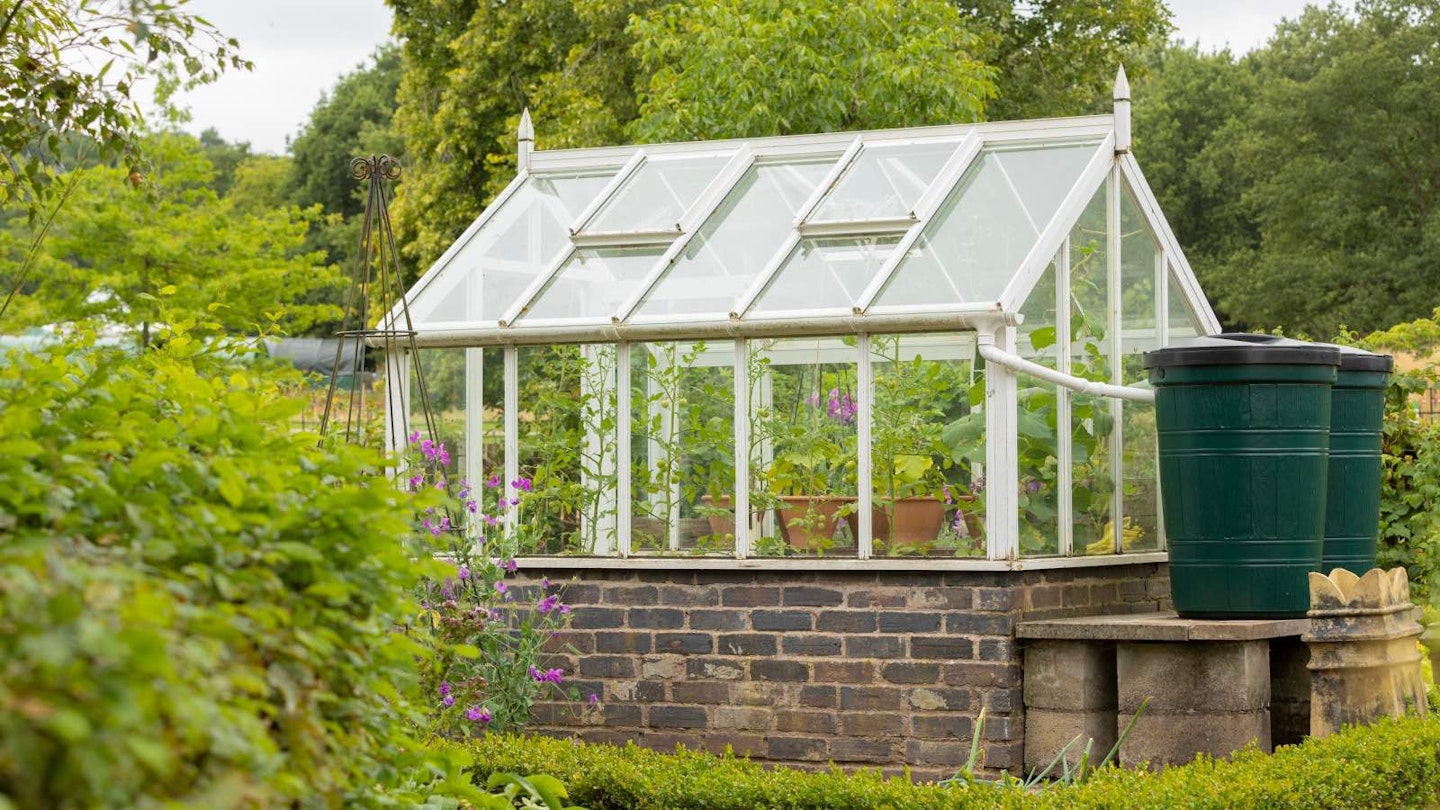Millions of people in England are facing widespread hosepipe bans as water companies react to one of the driest springs in over a century and record‑breaking June temperatures. Hundreds of thousands of households across southern and central England are now restricted from using mains‑fed hosepipes, but what exactly are the rules, who's affected, and what does that mean for our gardens, households and more?
No doubt you'll already have noted the long, hot, dry spell we've been having recently. And although some rain has fallen, and more is forecast, it's still not enough.
Official drought status has now been declared in multiple regions across England following the record-breaking June temperatures.
In late May, the north-west of England, including Cumbria, Lancashire, Greater Manchester and Cheshire, was classified as being in drought by the Environment Agency due to “the driest start to spring in 69 years”, with reservoir and river levels on par with previous drought years like 1984, 1995 and 2022. Soon after, on 12 June, Yorkshire was confirmed as the second drought region.
Which areas are likely to face hosepipe bans?
The Met Office has identified this as the hottest and driest spring since the late 19th century. As a result, the National Drought Group has been meeting to implement drought plans, including accelerating leak repairs, issuing drought permits, and coordinating with farmers, conservationists and water firms
Forecasts also suggest that up to five additional regions including the Midlands, central southern England, East Anglia, Lincolnshire and more could be in drought by September if rainfall remains below average, cementing this summer as one of the most severe drought episodes in modern UK history.
Who's affected by the hosepipe ban?
The following regions currently have hosepipe bans in effect:
Yorkshire Water: Ban in force from 11 July, affecting more than 5 million customers across West & South Yorkshire, East Riding, parts of Lincolnshire and Derbyshire.
South East Water: Ban from 18 July for about 1.4 million households in Kent and Sussex.
Thames Water: Ban begins 22 July covering around 1.1 million customers in Gloucestershire, Oxfordshire, Berkshire, Wiltshire and Swindon.

What is a hosepipe ban?
Officially known as a Temporary Use Ban (TUB), a hosepipe bans is pretty much what it sounds like: a ban on using mains-fed hosepipes for watering gardens, filling paddling pools and so on.
Buckets and watering cans are still allowed, as is using grey or rainwater, so if you have a water butt (although it might not have much in it), you can use that. The ban is enforced under UK law, with fines up to £1,000 for breaches, so don't be tempted to ignore it.
What you can't do during a hosepipe ban
-
Use hosepipes or sprinklers on lawns
-
Wash your car or clean your patio using a hosepipe
-
Use a hose or sprinkler to water flower beds, tubs or hanging baskets
-
Fill paddling pools, hot tubs, or ponds with a hose
-
Pressure-wash paths, walls or windows using a hose

What you can still do during a hosepipe ban
-
Water gardens, plants or flowers with a watering can, bucket or drip irrigation
-
Use stored rainwater or 'grey water' (the water you might ordinarily throw away such as bath or shower water, washing up water) - this will also save you money on your water bills!
-
Commercial users may still operate hoses for essential business activity, plus exemptions exist for medical needs, newly planted greenery, and religious purposes
How long will the hosepipe ban last?
Both South East Water and Yorkshire Water say that the hosepipe ban will remain in effect until reservoir levels "return to safer levels after significant rainfall". This is likely to take a while so, even though we have seen some rainfall in recent days, the ban won't be lifted immediately. Remember, this is both the driest spring since 1893 and the hottest June on record.
Will other areas have a hosepipe ban?
The Environment agency has said that further bans may come into place across the country depending on the weather for the rest of the summer and into autumn. If further bans do come into effect, the environment agency and gov.uk will report on them. In the meantime, we can all do our bit by trying to conserve water as much as possible - and save money in the process.
Tips to save water at home
-
Take showers instead of baths
-
Take shorter showers
-
Reuse cooking water or lightly used washing up water or shower water for gardens or plants
-
Take a look at alternative garden ideas including no-water hanging baskets
-
Run the washing machine or dishwasher with full loads only
-
Turn off the tap while brushing your teeth
-
Fix leaks or dripping taps - these not only waste water but add to bills as well.
Becky Fuller is a senior digital writer for Yours.co.uk. She is also a fully qualified personal trainer and strength coach, specialising in fitness and wellbeing for over 50s. Prior to joining Yours, Becky was a fitness writer for Saga, and a freelance entertainment and theatre journalist. Becky is passionate about helping people to move well and discover the many benefits of strength training.
